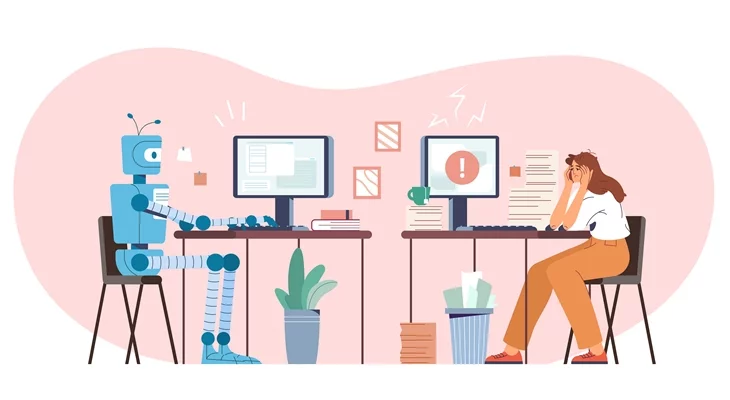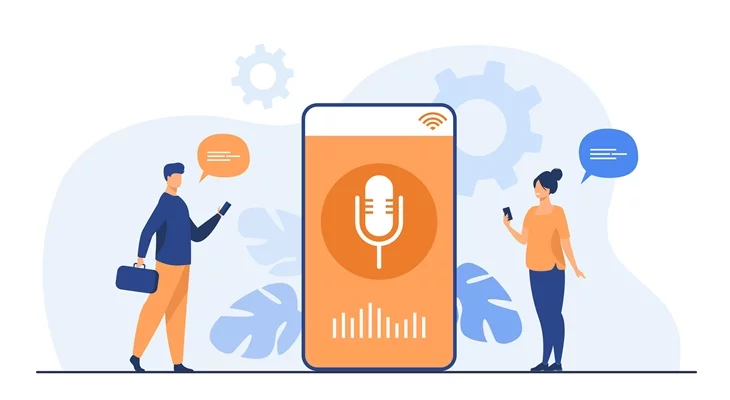Introduction: Tech Intelligence & Human Intelligence
The debate of Artificial Intelligence/ Tech Intelligence vs Human Intelligence is prompted by the study of AI to create smart intelligence.
Machine Learning (ML) and Deep Learning (DL) algorithms teach machines to learn on their own and make judgments in the same way that people do.
In this blog, we will look at the key differences between Artificial Intelligence and Human Intelligence. Read ahead to learn more.
What is Tech Intelligence or Artificial Intelligence?
Artificial Intelligence is a branch of data science. It focuses on building intelligent machines. These machines can perform a variety of tasks that generally need human intelligence and cognition. These intelligent machines learn from experience and historical data. They analyze their environment and take proper action.
AI is an interdisciplinary science. It uses concepts and tools from several areas such as computer science, cognitive science, linguistics, psychology, neuroscience, and mathematics.
What is Human Intelligence?
Human intelligence refers to the intellectual ability of humans. This ability enables us to think, learn from various experiences. It enables us to understand complex concepts, apply logic and reason. With intellectual ability, we can solve math problems, recognize patterns, draw conclusions, and make decisions. It helps us to retain information and communicate with other human beings.
What makes human intelligence unique are abstract emotions. These are emotions such as self-awareness, passion, and motivation. These emotions enable humans to perform complex cognitive tasks.
Tech Intelligence vs Human Intelligence
The idea of building a machine that can think like humans has moved from the world of fiction to the real world. Robots can do tasks that were previously impossible. Machines learn intelligence to make our work easier.
There are bots, humanoids, robots, and computerized people. They either flank us or organize with us in many ways. These AI-powered apps are faster to run. They also have great usability and accuracy.
On the other hand, human intelligence is identified with diverse learning and experience. In general, the prior maintenance of information as needed for AI does not matter. Human memory has the ability to register data. The human body may seem irrelevant compared to the machine equipment and programming base. There are layers in our brain that are very unpredictable. These layers are also much more complex than the layers present in machines.
Key Differences Between Tech Intelligence & Human Intelligence
Basic Structure
Biological intelligence is based on neural wetware. This is fundamentally different from artificial intelligence. They are independent of each other. When a biological system learns a new skill, it connects to the system itself. Whereas, once an AI learns a skill, it can be copied to another machine. The algorithms can be copied to all other similar digital systems that makes it easy to disperse information.
Speed
Signals from AI systems move almost at the speed of light. In humans, the speed of the nerve conduction moves at a speed of no more than 120ms. This is very slow on the computer timescale.
Connectivity and Communication
Human beings are unable to communicate directly with each other. They communicate using language and gestures with limited bandwidth. This is a slow and difficult process when compared to the communication of AI systems. AI systems can be directly connected to one another. Thanks to this direct connection, they can also work together on the basis of built-in algorithms.
Updatability and Scalability
AI systems have almost no restrictions on keeping them up to date. They keep improving and reconfiguring. They do so to have the correct algorithms and the necessary data storage and processing capacities. These updates are important for the tasks they are to perform. This is a unique ability of structural expansion and improvement. This quality hardly applies to humans.
Biology
Biology, on the other hand, does a lot with little. Organic brains are highly energy-efficient than computers based on AI. The human brain uses less energy than a lightbulb. Whereas, a supercomputer with comparable computing power uses enough electricity to power an entire village.
Nature of Existence
Human intelligence focuses on learning and adapting to the environment. Human intelligence adapts through a combination of several cognitive processes.
Whereas, artificial intelligence field focuses on the design of machines that can mimic human behavior.
Memory Usage
Human intelligence uses data present in memory for reasoning. Whereas, artificial intelligence uses built-in instructions developed by scientists/programmers.
Creation Mode
Human intelligence has a greater nature-based creation that has evolved over million years. Artificial intelligence, as the name suggests, is artificial, small, and created by humans. Human intelligence is the creator of artificial intelligence. but still, it cannot create a human superior.
Learning Process
Human intelligence has to learn from various situations encountered in life and their outcomes. This can lead to millions of overall functions in their life. But, artificial intelligence is only defined or developed for certain tasks. Its applicability to other tasks may not be possible without facing any problems.
Dominance
Artificial intelligence can beat human intelligence in some areas . For example, in chess, a supercomputer has beaten the human player. This is because a computer can store all the moves made by all people and can predict 10 moves in comparison. Human players can think 10 steps ahead but cannot store and recall that many moves in chess.
Conclusion
Human intelligence adapts to the environment. It does so with a combination of multiple cognitive processes. Artificial intelligence focuses on the construction of machines that can mimic human behavior. But, AI researchers can go so far as to implement weak AI but not a strong AI. In fact, some believe that strong AI is never possible. This is due to the various differences between the human brain and a computer. At the moment, the very basic ability to duplicate human behavior is viewed as artificial intelligence.
You may also like to read:
Narrow AI and General AI: What is the Difference Between Them
AI and ML in Anti-Money Laundering : Advantages and Challenges





